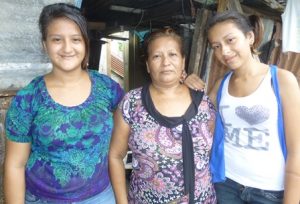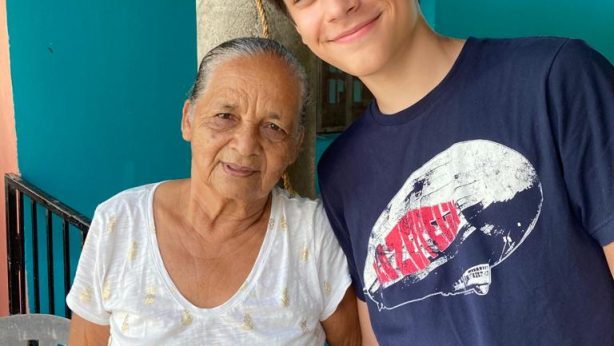Support Secondary Education in Honduras
Investing in the local economy
According to a study published by the OECD (Organization for Economic Cooperation and Development), in the mid-2000s, the majority of emigrants from Honduras have been men (70%), with low education (59% with no greater than a sixth grade education) who are fairly young (65% between 15-29 years old). By 2008, the Honduran Statistical Institute (INE) reported that over 90% of emigrants left Honduras in search of employment. As the country with the greatest dependence on remittances in Central America—19.3% of GDP—Honduras needs educated young people to contribute to the local economy rather than seeking opportunities abroad.
Obstacles to a Quality Education

Henry and his younger sister Daneli are two motivated young people looking for a way to get ahead. Three years ago, Henry started his middle school education at a school within his community. After his first year, his mother Adela chose to move him to a different school in a nearby city where he would be able to pursue a higher-quality education. However, at the start of the new school year, he was made to repeat the previous grade because the poor education that he had received within his community had not adequately prepared him. With hard work, Henry overcame this obstacle and is now wrapping up his last year of middle school with good grades and hopes to go on to high school in February.
The challenges that Henry faced gave Adela even more reason to work hard in her business to give Daneli the opportunity to join him at the school when she began middle school. Now that Henry is getting ready to enter high school to study a computer science curriculum, his educational costs are increasing with the need for new uniforms and textbooks. Because of this additional expense, Adela worries that Daneli may have to return to the community to complete her middle school education. For Daneli, the biggest concern isn’t missing out on the friendships she’s made, but rather losing out on what she considers higher quality preparation for high school, and eventually college.
Many families are forced to choose one child’s education over another’s but Adela is doing everything that she can to avoid this situation. Both have goals of continuing to pursue a college education, and along with their mother, hope to secure a Secondary Education Loan to get one step closer to this dream.
Vocational Training at the High School Level
In addition to the more familiar education paths that Henry and Daneli are following, high schools in Honduras often incorporate vocational career paths within their curricula to motivate young people who have passions beyond traditional academic subjects to stay in school. Whether aspiring to run a small business, or become a stylist or a mechanic, a high school degree enables youth to more easily pursue their dreams.
As Marlene explains, “It’s not as easy as it used to be to get by with a primary school education. Even to work in the supermarkets, they now want to see a high school degree.” Her older daughter Karen has now been able to finish her high school education as a professional stylist, hopeful to begin work soon at a local beauty salon. However, she has struggled to persevere in sending her youngest, Keyla, to school. Although she has now returned, there is great uncertainty about whether she will be able to continue with the resources that they have available. Despite the fact that her school is not too far away, walking or cycling are out of the question because of the high level of gang activity in the area, forcing Marlene to pay for her daughter’s bus transportation each day. This added cost on top of the registration fees, uniforms and school supplies, makes Marlene worry that Keyla will not be able to pursue her dream to learn seamstress work and become a clothing designer.
In support of children like Henry, Daneli, and Keyla who all have the drive to continue studying but simply lack sufficient resources, we are launching a new campaign [link to page] to raise funds for this new Education Loan. By offering support through a loan to entrepreneurial mothers like Adela and Marlene, we intend to reduce the burden that so often comes at the beginning of the school year and prevents children from seeking a higher education. To learn more, visit our campaign page here, or email me at gcappuccitti@fundacionadelante.org.


